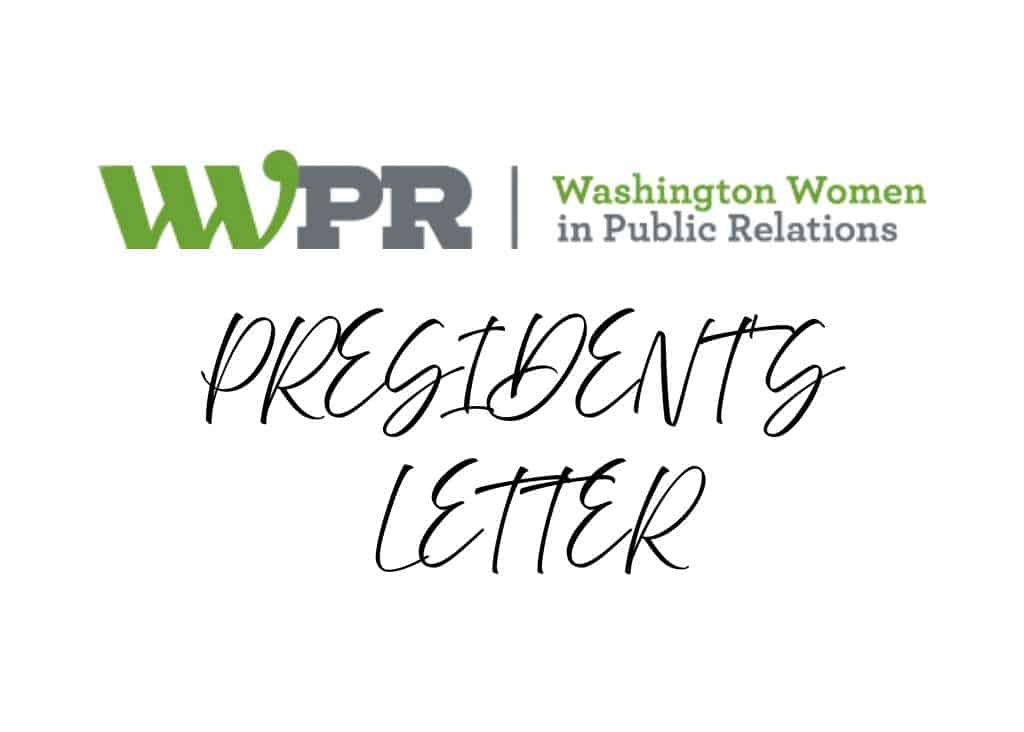President’s Letter: Grateful for 2025, Excited for What’s Ahead

Dear WWPR Community, as we close out 2025, I’m feeling incredibly grateful—for the unforgettable experiences we’ve shared, the relationships we’ve deepened, and the continued momentum we’ve built as a community of women in communications.
It has been an absolute honor to serve as President of WWPR during such a meaningful year. From day one, our focus has been on strengthening connections, growing member value, and celebrating the power of this network—and I’m so proud of what we’ve accomplished together.
A Look Back: Highlights from 2025
✨ Woman of the Year
Our signature event was nothing short of spectacular. We honored three extraordinary finalists and celebrated our 2025 Woman of the Year at a sold-out luncheon filled with energy, inspiration, and community. I’ll never forget the joy in that room.
✨ Emerging Leaders Awards
Fifteen years in, the ELAs are still one of the most moving events of the year. The rising talent in our field is nothing short of extraordinary, and it’s a privilege to honor and support the next generation of powerhouse communicators.
✨ Executive Communicators Dinners
These remain one of my favorite series we offer—intimate, off-the-record conversations among senior communicators that sold out each and every time. Thank you to MiQ for making them possible.
✨ Scholarships & Support
I’m especially proud that we were able to offer 30 annual memberships to women who were impacted by layoffs this year. It’s just one way we continue to walk the walk when it comes to building a supportive, inclusive, and resilient community.
✨ Professional Development That Inspires
From our AI & Credibility panel that I had the pleasure to moderate to Crisis Comms Workshops, book talks, and public affairs discussions, we tackled some of the most pressing topics facing communicators today. Thank you to all of our incredible speakers and moderators.
✨ A Year of In-Person Connection
Whether it was our media roundtable, our Summer Social, or earlier this week at our Holiday Happy Hour, this year reminded us that the magic of WWPR is in the connections we make face to face.
And of course, we started the year strong with an inspiring keynote from Debbi Jarvis at our Annual Meeting Luncheon—and I couldn’t be more excited to already have next year’s event on the calendar.
What’s Ahead in 2026
I’m thrilled to pass the baton to our incoming President Charmaine Reilly and Vice President Vanessa French, two incredible leaders with a deep commitment to our mission. With the talented Board and Advisory Council they’ve assembled, I have no doubt 2026 will be our strongest year yet.
A few exciting events already on the calendar:
🗓️ WWPR Annual Meeting Luncheon
January 21, 2026 | The Hamilton
Keynote: Erica Loewe
🍷 The One Party (co-hosted with AMADC, AAF, PRSA, & IABC)
January 22, 2026 | Royal Sands Social Club
To our incredible Board, Advisory Council, volunteers, partners, and sponsors—thank you for your time, your energy, and your belief in what we’re building together.
And to every single member: thank you for being part of this community. It’s been the greatest privilege to serve you this year.
Wishing you a joyful holiday season—and an even more inspiring 2026. I can’t wait to see where we go next.
All my best,
Colleen Lerro Gallagher
WWPR President (2025)


